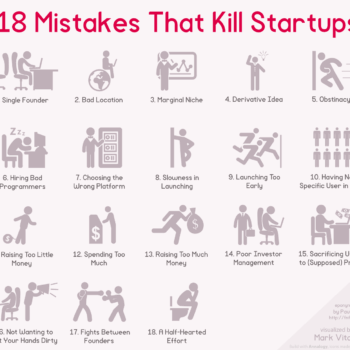In a world where relying on one source of income is not enough and employment is increasingly scarce, a trend is growing as more and more young entrepreneurs have resorted to starting up their own businesses as a means of employment. Although a high number of young entrepreneurs are taking the plunge and going out in the world individually, we still see a lot of promising startup businesses crumble shortly after opening their doors.
Because we care, we’ve compiled a list outlining the 10 biggest mistakes young entrepreneurs make when starting up a business:
1. Choosing a Bad Name. First impressions are extremely important and the first thing potential customers or clientele are most likely to know about your business before anything else, is the business name. The choice of what you call your business should reflect what you want to achieve, the key factors to consider are, is the name catchy? And does it give an idea of your type of business?
2. Location, Location, Bad Location.Clientele should be able to easily access you when they need to, so where you are located is also an essential key factor, because for startup businesses you need all the new clientele you can get, so don’t make it hard for them to find you otherwise they won’t bother and will go to an already established business.
3. Imitating Other Businesses. Being unique is one of the only things a startup business can use to distinguish themselves from the competition. Do not copy existing ideas and expect to have an edge above other businesses in the industry, show potential clients how you are different from the rest and why it would be better to do business with you other than businesses which have probably been around much longer than yours.
4. Doing Market Research. Young entrepreneurs nowadays are underestimating the power of researching the market before embarking on an investment, what you think you may see might be different from the actual truth. Find out whether or not there is a demand for that product or service within that area, drafting questionnaires and asking around is an inexpensive and simple way of assessing demand.
5. Arrogance. Okay, so this is your business idea, you thought of it alone, and here you are with your startup capital ready to take on the world, don’t let all of this get to your head, especially when someone who has more experience than you wants to give you some advice on how to go about things. Your arrogance might also lead you to the worst thing you can do when starting up which is “burning bridges”, every startup needs as many connections as possible for it to survive.
6. Overspending.
As an upcoming business a startup should keep its costs as low as it possible can, there is no need to be extravagant with decorating your office space, no one really cares if you have a fountain in the middle of your reception area. What you need to concern yourself with is making sure that as the business has enough working capital to keep it afloat while you build it from the ground up.
7. Quitting Your Job too early. If you have a day job and you are considering venturing alone into the business world, don’t quit your job just yet, set up your business and let it be stable before you completely cut off your main source of income. The last thing a startup needs is the owner draining it of profits every time they’re made
8. Choosing Target Market. Not everyone is going to like your product, not necessarily that your product/service is terrible but maybe it’s just not what some people are looking for, so as you start your marketing campaign, make sure you have your target market set then aim for them, obviously we are not saying that you should be narrow minded, feel free to explore a new target market if it might broaden the business but always remember who brings in the money.
9. Excessive Work Delegation. A startup demands a lot of hard work to be put into it, and all the work has to be efficient. Don’t get into the habit delegating too much of the work to subordinates, get your hands dirty and show them the level of dedication you expect, this will also help in branding your image to partners of the upcoming startup.
10. Being the Single Founder. As a young entrepreneur you want your startup to make it big, and you want your name solely attached as an attribute to its success, but the difficult truth is that most startups that make it into the market as established companies are mostly not solely owned. The reasoning behind this logic is that you will always need a second opinion, because like we said previously, you can never be right all the time.
_____________
About the Author
This article was produced by TechTrends Zambia. see more.





























